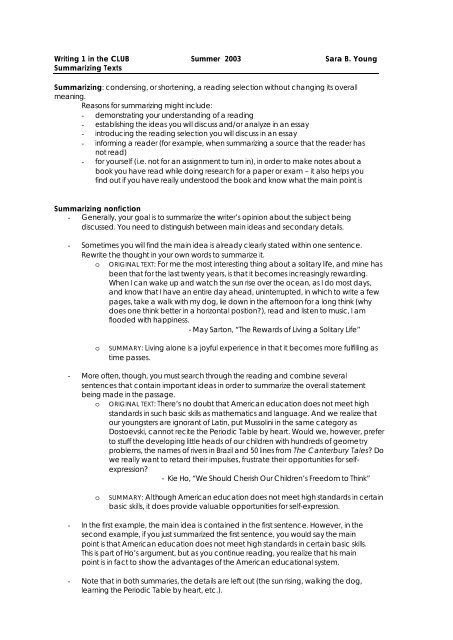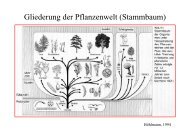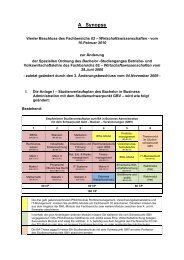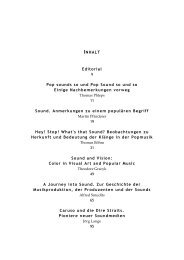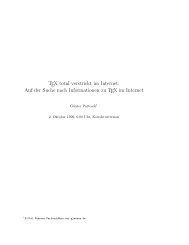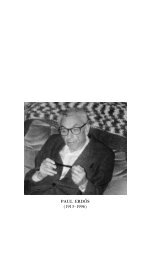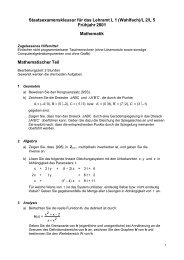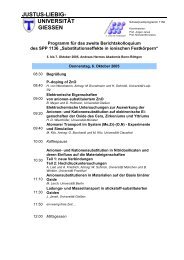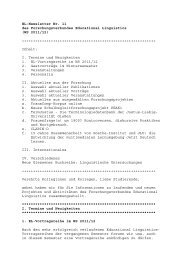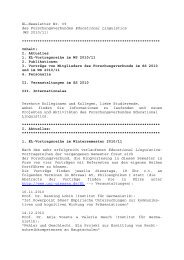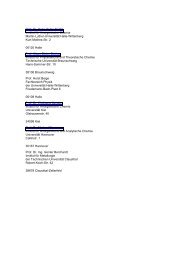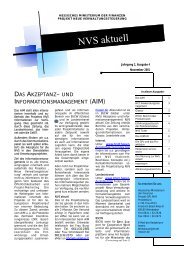Writing Summaries
Writing Summaries
Writing Summaries
Create successful ePaper yourself
Turn your PDF publications into a flip-book with our unique Google optimized e-Paper software.
<strong>Writing</strong> 1 in the CLUB Summer 2003 Sara B. Young<br />
Summarizing Texts<br />
Summarizing: condensing, or shortening, a reading selection without changing its overall<br />
meaning.<br />
Reasons for summarizing might include:<br />
- demonstrating your understanding of a reading<br />
- establishing the ideas you will discuss and/or analyze in an essay<br />
- introducing the reading selection you will discuss in an essay<br />
- informing a reader (for example, when summarizing a source that the reader has<br />
not read)<br />
- for yourself (i.e. not for an assignment to turn in), in order to make notes about a<br />
book you have read while doing research for a paper or exam – it also helps you<br />
find out if you have really understood the book and know what the main point is<br />
Summarizing nonfiction<br />
- Generally, your goal is to summarize the writer’s opinion about the subject being<br />
discussed. You need to distinguish between main ideas and secondary details.<br />
- Sometimes you will find the main idea is already clearly stated within one sentence.<br />
Rewrite the thought in your own words to summarize it.<br />
o ORIGINAL TEXT: For me the most interesting thing about a solitary life, and mine has<br />
been that for the last twenty years, is that it becomes increasingly rewarding.<br />
When I can wake up and watch the sun rise over the ocean, as I do most days,<br />
and know that I have an entire day ahead, uninterrupted, in which to write a few<br />
pages, take a walk with my dog, lie down in the afternoon for a long think (why<br />
does one think better in a horizontal position?), read and listen to music, I am<br />
flooded with happiness.<br />
- May Sarton, “The Rewards of Living a Solitary Life”<br />
o SUMMARY: Living alone is a joyful experience in that it becomes more fulfilling as<br />
time passes.<br />
- More often, though, you must search through the reading and combine several<br />
sentences that contain important ideas in order to summarize the overall statement<br />
being made in the passage.<br />
o ORIGINAL TEXT: There’s no doubt that American education does not meet high<br />
standards in such basic skills as mathematics and language. And we realize that<br />
our youngsters are ignorant of Latin, put Mussolini in the same category as<br />
Dostoevski, cannot recite the Periodic Table by heart. Would we, however, prefer<br />
to stuff the developing little heads of our children with hundreds of geometry<br />
problems, the names of rivers in Brazil and 50 lines from The Canterbury Tales? Do<br />
we really want to retard their impulses, frustrate their opportunities for selfexpression?<br />
- Kie Ho, “We Should Cherish Our Children’s Freedom to Think”<br />
o SUMMARY: Although American education does not meet high standards in certain<br />
basic skills, it does provide valuable opportunities for self-expression.<br />
- In the first example, the main idea is contained in the first sentence. However, in the<br />
second example, if you just summarized the first sentence, you would say the main<br />
point is that American education does not meet high standards in certain basic skills.<br />
This is part of Ho’s argument, but as you continue reading, you realize that his main<br />
point is in fact to show the advantages of the American educational system.<br />
- Note that in both summaries, the details are left out (the sun rising, walking the dog,<br />
learning the Periodic Table by heart, etc.).
Summarizing fiction<br />
- Here you will generally be summarizing the plot of a work of fiction. When you start<br />
talking about what you think is the main point of the work, or the author’s reason for<br />
writing it, or any aspect of analysis, then you are already on to your own opinion – that<br />
will be the heart of your essay. The summary is usually there just to help the reader by<br />
providing background information to make your argument or analysis<br />
understandable.<br />
- There are four important features in a plot summary:<br />
o It should be accurate.<br />
o It should be brief.<br />
o It should contain the most important details (main characters and key events),<br />
and only the most important details.<br />
o It should be in your own words.<br />
Identifying a source<br />
- Indicating the author and title<br />
o (The author) states in (this reading selection) that…<br />
o (The author), in (this reading selection), shows that…<br />
o In (this reading selection), (the author) writes that…<br />
o As (the author) says in (this reading selection), …<br />
o The main idea of (the author’s reading selection) is that…<br />
- The first time you refer to an author, use the full name (first and last). After that, you<br />
can refer to him or her by surname only.<br />
- Introducing an author’s ideas: verbs<br />
acknowledge admit advise advocate affirm<br />
allude to argue ask assert assume<br />
believe bring to light caution claim concede<br />
concentrate on conclude condone confess contend<br />
convey declare disclose discuss doubt<br />
emphasize endorse establish examine explain<br />
explore expose express feel find<br />
focus on give credence to highlight identify illustrate<br />
imply indicate insist intimate maintain<br />
note observe point out proclaim propose<br />
question reason recognize recommend remark<br />
reveal show state stress suggest<br />
think uncover underline underscore unveil<br />
voice write<br />
- Introducing an author’s ideas: verb tense<br />
o It is conventional to use the present tense when summarizing what an author<br />
has said. This acknowledges that the author’s ideas continue to exist even<br />
through the author has finished writing about them.<br />
Source: Spack, Ruth. Guidelines. Second Edition. Cambridge: Cambridge University Press,<br />
1998. 272-278.


